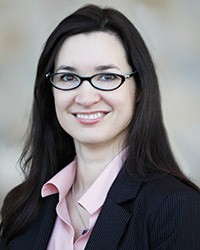Many believe the struggle for equal rights for the LGBT community is the civil rights issue of our time, with same-sex marriage now in the spotlight.
Equality in the workplace could be considered a major catalyst to the movement, and groups such as San Francisco-based Out & Equal Workplace Advocates are champions of that cause.
Teddy Witherington is chief marketing officer of Out & Equal, which is comprised of up to 20 percent human resources professionals and anywhere from 70 percent to 80 percent LGBT executives from Fortune 500 companies. He’s also a major events veteran, leading LGBT Pride festivals for six years in London—the largest free music festival in Europe—and nine years in San Francisco.
Attendees at Out & Equal’s annual Workplace Summit conference convene annually to learn about equality issues.
“They go as teachers as well, to share their best-practices,” Witherington says. “From companies at all states of implementation, such as IBM, which has been there before, to companies that have done their first tentative steps. They’re from all levels of engagement or history.”
The group is celebrating its 15th anniversary, growing to 3,000 members from a couple hundred at its first meeting in Seattle.
“As the event has grown, we’ve also grown, you might say,” Witherington offers, “so we’re now looking at there being a standardized, four-year rotation. And we’ve added a wild card, just to spice it up, by also doing a Global Summit—we did the first one in London last year—on a bi-annual basis.”
But it’s the last Workplace Summit, held in Baltimore, that’s probably the most interesting, as it was slammed by Hurricane Sandy and would earn a medal for meetings bravery if there were one.
“We were faced with a decision leading into the event; do we proceed or do we cancel? We made a decision to proceed," Witherington remembers. “For our movement and the community that we serve, this is a critical gathering, and it would not have been possible for us to reschedule with the resources we have.”
Since the Baltimore Convention Center is connected to the Hilton Baltimore by a covered walkway, and the convention center is designated a public place of shelter, the group’s safety was never in doubt.
“We had all the necessary staff and smarts available to do all of the necessary re-knitting on a short-term basis,” Witherington says. “That was a dream. And the facilities were so willing to work with us, so we didn’t incur any additional penalties as the result of the storm.”
“As the weather cleared, more and more people were able to attend,” he continues. “We had 200 on the Sunday night and on Monday morning. We ended with 1,400 Thursday; 2,100 had pre-registered. From Monday to Tuesday the city was on lockdown. We had to make sure we were all safely stashed away at the Hilton by 5 o’clock, which was the official [curfew] from the governor.”
In the end, all of the turmoil was worth it, because the meeting was just too crucial at such a critical time in the movement.
“We couldn’t put our advancement on hold,” he says. “You can’t put that year on hold.”




